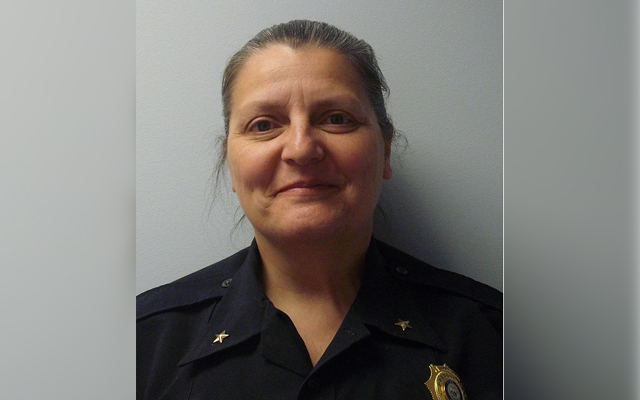PRESQUE ISLE, Maine — Aroostook County’s first female police chief is aiming to make progress on a range of community safety issues, while also getting more people interested in the law enforcement profession.
“I’m excited for the opportunity to serve as the chief,” Presque Isle’s new police chief Laurie Kelly said Tuesday in an interview after being hired for the job from a field of six applicants.
Born and raised in Mapleton, Kelly graduated from Presque Isle High School in the class of 1982 and has spent the last 33 years working in the Presque Isle Police Department, a kind of career she wants young people to consider.
“I don’t know that many people are looking to join this profession. That’s one of my goals, to get people interested in it again, so it’s accessible.”
Before joining the Presque Isle Police Department in 1986, Kelly served in the U.S. Army, enlisting at the age of 17 right after graduation.
“I really didn’t know what I wanted to do as far as college went. I had relatives that were in the military and I knew it was a good opportunity,” Kelly said. “I took French in high school and I liked the idea of different languages and cultures.”
Taking an offer to delve into another language, Kelly learned Russian and went to work in Germany on Cold War-era intelligence efforts.
When Kelly left the Army in 1986, she said she thought she might work in the federal government, but started looking for a job in Aroostook County. That fall she was hired as a patrol officer in Presque Isle and became the city’s first female police officer.
Since then, she’s worked in a variety of officer and management positions within the department including as deputy police chief and most recently as acting police chief before the city council hired her as the new chief effective Jan. 15.
During her career, she has watched the law enforcement profession change with society.
“It’s a fluid career. It’s always changing. There’s always new laws. There’s always something in the national atmosphere that drives new laws,” Kelly said.
“When I first started, domestic calls were considered more private, so the response to that was much different. Today, there’s a mandatory arrest.”
Another major change concerns the problem of drug addiction, drug trafficking and associated crimes.
“The demographic of people committing crimes has changed quite a bit,” Kelly said. “The biggest thing I think right now is the different types of drug culture.”
Kelly oversees a department with a staff of 15 sworn officers and full-time dispatchers, while also collaborating with county and state law enforcement agencies and the court system.
“We prefer to get the people who are dealing drugs and bringing it in from other places, but that starts on the smaller side,” Kelly said of drug investigations.
“A lot of times, it’s a lot of legwork and information sharing that goes into it. We work well with courts and probation, because that gives us a way to follow up and hold people accountable. We’ve been able to make some progress there.”








